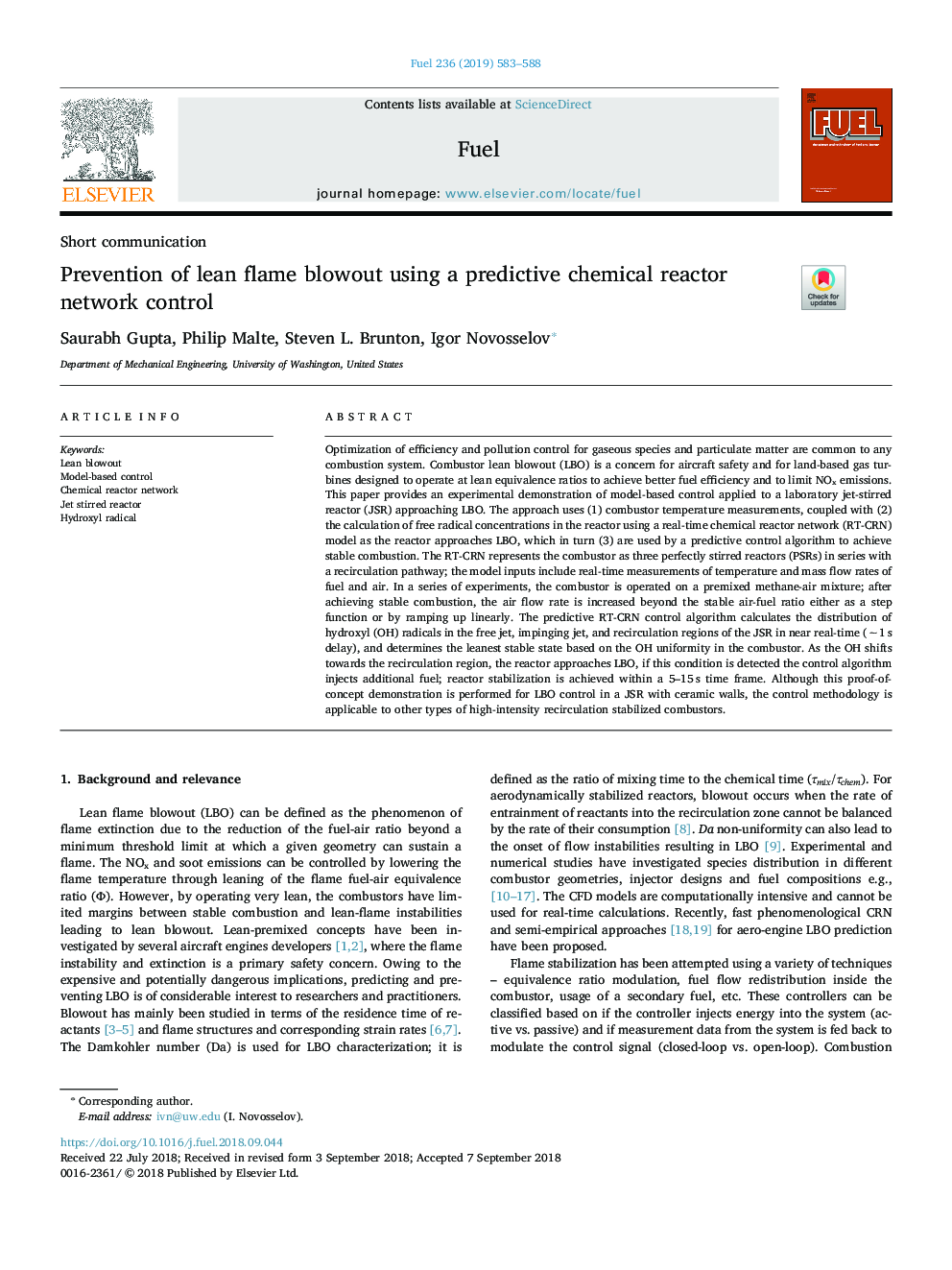| Article ID | Journal | Published Year | Pages | File Type |
|---|---|---|---|---|
| 10145527 | Fuel | 2019 | 6 Pages |
Abstract
Optimization of efficiency and pollution control for gaseous species and particulate matter are common to any combustion system. Combustor lean blowout (LBO) is a concern for aircraft safety and for land-based gas turbines designed to operate at lean equivalence ratios to achieve better fuel efficiency and to limit NOx emissions. This paper provides an experimental demonstration of model-based control applied to a laboratory jet-stirred reactor (JSR) approaching LBO. The approach uses (1) combustor temperature measurements, coupled with (2) the calculation of free radical concentrations in the reactor using a real-time chemical reactor network (RT-CRN) model as the reactor approaches LBO, which in turn (3) are used by a predictive control algorithm to achieve stable combustion. The RT-CRN represents the combustor as three perfectly stirred reactors (PSRs) in series with a recirculation pathway; the model inputs include real-time measurements of temperature and mass flow rates of fuel and air. In a series of experiments, the combustor is operated on a premixed methane-air mixture; after achieving stable combustion, the air flow rate is increased beyond the stable air-fuel ratio either as a step function or by ramping up linearly. The predictive RT-CRN control algorithm calculates the distribution of hydroxyl (OH) radicals in the free jet, impinging jet, and recirculation regions of the JSR in near real-time (â¼1â¯s delay), and determines the leanest stable state based on the OH uniformity in the combustor. As the OH shifts towards the recirculation region, the reactor approaches LBO, if this condition is detected the control algorithm injects additional fuel; reactor stabilization is achieved within a 5-15â¯s time frame. Although this proof-of-concept demonstration is performed for LBO control in a JSR with ceramic walls, the control methodology is applicable to other types of high-intensity recirculation stabilized combustors.
Related Topics
Physical Sciences and Engineering
Chemical Engineering
Chemical Engineering (General)
Authors
Saurabh Gupta, Philip Malte, Steven L. Brunton, Igor Novosselov,
